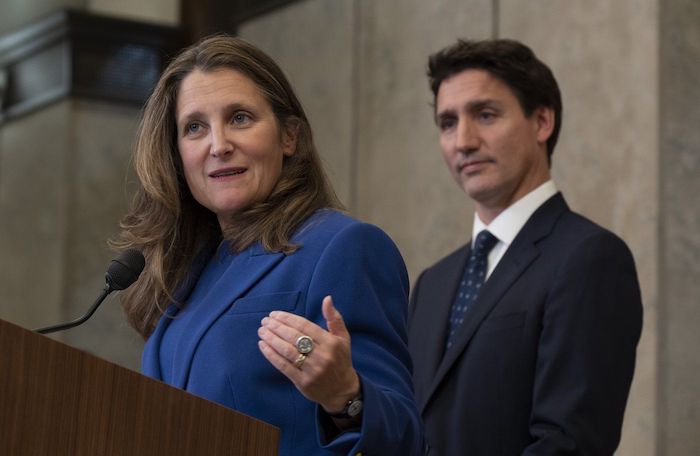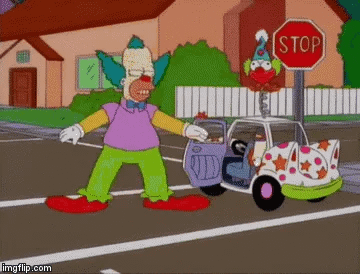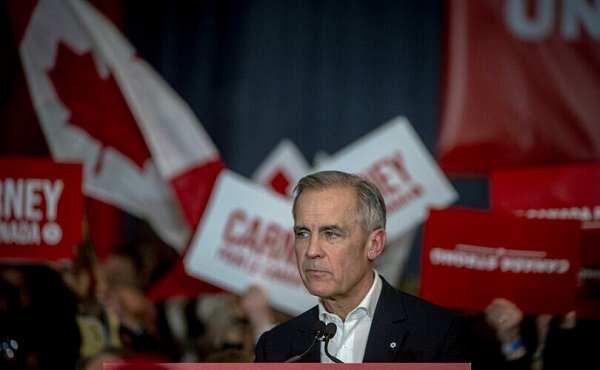National
Finance Minister Chrystia Freeland resigns from Trudeau Cabinet

From the Coalition of Concerned Manufacturers & Businesses of Canada

2025 Federal Election
Poilievre Announces Plan To Cut Taxes By $100,000 Per Home

From Conservative Party Communications
Plan incentivizes municipalities to cut building taxes while taking sales tax off for $100,000 savings per home.
Conservative Leader Pierre Poilievre announced that on top of axing the sales tax on new homes, a Conservative government will incentivize municipalities to cut building taxes, for a total savings of $100,000 on an average home in Canada’s big cities. For every dollar of relief a municipality offers in development charges, a Conservative government will reimburse 50%, up to a maximum of $50,000 in savings for new homebuyers.
Poilievre already announced his plan to eliminate the sales tax on new homes under $1.3 million, which will save homebuyers up to $65,000. Combining the two policies will lower the cost of a new home by up to $115,000. For an average home in the GTA or Vancouver, the savings will be approximately $100,000. Conservatives will also require cities to publicly disclose their development charges and explain how the federal reimbursement will be used so Canadians can hold municipalities accountable when they build bureaucracy instead of homes.
“After the Lost Liberal Decade that saw housing costs double, it’s time for a new Conservative government that will provide affordable homes for Canadians,” said Poilievre. “The Liberals have broken the promise that hard work buys an affordable home in a safe neighbourhood. Conservatives will restore it by building more, taxing less, and lowering costs for homebuyers to save $100,000 on a new home.”
Taxes and development charges are now more than 30% of new home costs in Ontario and British Columbia. In Toronto, development charges skyrocketed from under $30,000 to nearly $140,000 during the Lost Liberal Decade, and across Canada, they’ve increased by $27,000 in just two years. These government charges are passed on to homebuyers, turning the dream of homeownership into a nightmare for everyday workers and young Canadians.
Instead of standing up to municipal gatekeepers who jacked up development charges to fund bureaucracy, Liberals rewarded them. After the Liberals gave the City of Toronto $471 million, the city increased charges 42%, leading to a 39% drop in housing starts. Ottawa and Victoria also raised taxes after receiving Liberal funding. In Victoria, housing starts fell by 55% even as development charges went up by 258%.
During the Lost Liberal Decade, with Mark Carney as their economic advisor, housing costs in Canada doubled, rising faster than in any other G7 country. It now takes longer to save for a down payment than it does to pay off a mortgage. And 80% of Canadians now believe homeownership is only possible for the rich.
Mark Carney is recycling the same old Liberal promises that didn’t work for the last decade. He says these Liberal policies will make housing affordable, but under the Liberals, costs have doubled. As usual with Liberals, Carney thinks more government is the answer. He says he wants the government to build homes, but his plan will just add more bureaucracy to a government that can’t get anything built and can’t even issue passports on time. Carney and the Liberals have no plan to actually help people buy their own homes.
“Mark Carney doesn’t understand the struggles everyday Canadians face being priced out of their communities and losing the dream of homeownership to taxes and inflation,” Poilievre said. “We can’t afford a fourth Liberal term of government run by out-of-touch elites. Only a new Conservative government will put hard-working Canadians First–For a Change–and restore the promise of homeownership by building more, taxing less, and bulldozing bureaucratic barriers.”
2025 Federal Election
The status quo in Canadian politics isn’t sustainable for national unity

From Energy Now

William Lacey

The Willful Blindness of the East
That’s it. I’m officially a separatist…sort of. Really, I’m just completely tired of Ontario and Quebec. After 10 years of frozen economic output, a runaway immigration program, and a debt profile that went hyperbolic, Eastern Canada appears to have decided that another four years of the same old, same old is a good path forward.

In short, they think that the clown car that led this country, after just swapping out the driver (who happened to be one of the people who was supplying the directions), is a good idea.

Having been born and raised in Alberta, I feel that there is a significant amount of the battered spouse syndrome that is alive and well in the province, with people saying “I know the rest of the country love me. They’re just having a bad day.” No matter how many times I ask “what’s in this great union for Alberta” I get the same kitschy feedback. Be grateful for Canada and its social programs and “free” medical system (they are broken), Canada in the Great War (umm…that was 107+ years ago), great moments in sports, tidewater access (umm….that’s a quiet threat), etc. When it comes to one tangible answer, I just get silence. But the reality is that the East is perfectly happy to look down their noses, take the money, and then say “you are not one of us; you lack provenance!” Now some of you may say that is bullshit and that Albertans are an ungrateful bunch. But being someone who has lived in both the East and West, and worked with people who come from all walks, I know firsthand the bias exists.
Alberta, and the West, have made outsized contributions to confederation, much of that through the system that we call equalization. The idea behind this system was so that all parts of Canada get equal treatment through the taxation system, taking funds generated by “have” provinces and redistributing those funds to “have not” provinces, making sure that all are afforded the basics that Canadians have taken to be their definition of Canada. This is essentially done by looking at the fiscal capacity of each province, based on the average national tax rate, and then “balance” the books based on this average capacity. And that’s fine. But in the world I live in, when one group reaches out and helps the other, there is an acknowledgement of the effort, not a “va te faire foutre!” like comes out of Quebec. There is a certain irony from the chart below that it looks like Quebec is giving the finger to the rest of the country.

The reality is that the East views it as beneath them to say thank you for such a contribution. Moreover, many go out of their way to vilify the work that is done and to demean those who do it. So you wonder why the frustration mounts? The fact of the matter is that I believe that the Conservative movement has been codified out East as a fringe movement, only to be voted for when the Liberals need a brief time out.
Do I think separation is a real possibility? Not really. There are numerous challenges, some of which are more difficult than others. The largest one is probably related to indigenous matters, but they too likely suffer from a version of battered spouse syndrome. There is an underlying tenet that the Federal Government cares for them, but based on what I have seen, that is a unique “standard of care” that is being applied. I actually believe that better outcome for the indigenous people could be achieved under a new relationship, assuming both sides were open minded.
Now before you say “you are on the fringe, you don’t represent the masses”, I can tell you that I know a lot of people who are leaders in their professions within this province, whether that is health, law, business, etc. that all echo these feelings. The frustration is palpable, it is real and it is broader than you think.
So, with this I finally raise my hand and make the call that “I’m tired of the relationship I am in.” This pains and saddens me deeply, as I am someone who has worn the maple leaf with great pride and who has been happy to pronounce “I am Canadian.” I think it’s time to reconsider who I view as my partner.
-

 John Stossel1 day ago
John Stossel1 day agoGovernment Gambling Hypocrisy: Bad Odds and No Competition
-

 2025 Federal Election2 days ago
2025 Federal Election2 days agoMark Carney’s radical left-wing, globalist record proves he is Justin Trudeau 2.0
-

 2025 Federal Election1 day ago
2025 Federal Election1 day agoFifty Shades of Mark Carney
-

 2025 Federal Election2 days ago
2025 Federal Election2 days agoMark Carney pledges another $150 million for CBC ahead of federal election
-

 Alberta1 day ago
Alberta1 day agoAlberta’s embrace of activity-based funding is great news for patients
-

 2025 Federal Election2 days ago
2025 Federal Election2 days agoWATCH: Massive Crowd for Historic Edmonton Poilievre Rally
-

 2025 Federal Election1 day ago
2025 Federal Election1 day agoCommunist China helped boost Mark Carney’s image on social media, election watchdog reports
-

 2025 Federal Election10 hours ago
2025 Federal Election10 hours agoRCMP memo warns of Chinese interference on Canadian university campuses to affect election









